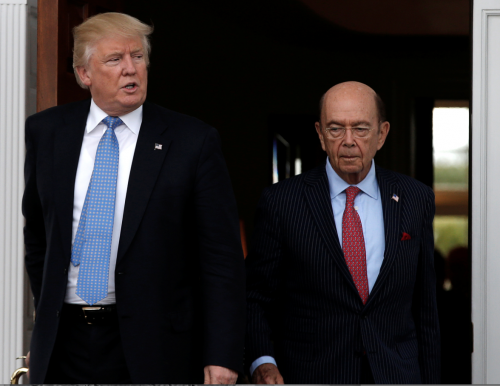Please read this piece, from the excellent Mauldin Economics page, entitled Something Rotten in the State of Russia. It shows the many profound problems besetting the Russian state.
That horrible, horrible man, Putin, is indeed horrible.
But how dangerous is Putin to the USA? Or to our allies?
Putin presides over a crumbling country.
Meanwhile Trump, who some believe is under Putin’s control, is focused on driving down oil and gas prices and pushing NATO to increase defense spending, both of which are hard blows to Russia. Trump is also promoting pro-growth policies which will help fund a military buildup and modernization.
Russia has no prayer of matching this.
Putin has real problems, with no real solutions.
Trump is confronting Putin with challenges he cannot overcome, which will only grow worse over time.
The idea that Russia is capable of embarking on a new Cold War against the United States is laughable.
Russia is only considered to be a country of the first rank because of its nuclear arsenal. But that arsenal is useless, other than as a deterrent to invasion, or as a way to commit suicide. No one is going to invade Russia any time soon. More importantly, Putin and his cronies are not suicidal. Putin may even be the richest man in the world. Putin and his posse have a nice life, and a lot to lose. They likely want to enjoy the benefits of their despotism in peace, not see their dachas reduced to radioactive ash.
(Further, the Russian nuclear arsenal may be of diminished value if, as expected, Trump pushes forward on missile defense.)
China is a rising power; Russia is a declining power, even a dying power. Russia is a menace to its neighbors; Islamic Terrorism is a menace around the world.
China is the long term challenge, Islamic Terrorism is the acute, immediate challenge, to the USA and its allies. Russia faces a long-term threat from China, which seems destined to simply overrun the entirety of Asiatic Russia. Russia is also threatened by Islamic terrorism. The USA and Russia face the same serious threats.
Russia should be aligned with the USA with regard to both China and Islamic terrorism.
The current situation is absurd and should be resolved.
This does not mean the USA will become “friends” with Putin, or the Russians.
We will not trust Putin or the Russians.
We will not be allies, beyond allies of convenience, case by case, with Putin or the Russians.
We will not have shared values with Putin or the Russians.
We will simply recognize important common interests, including ramping down the hostility between our countries, cooperating where it is mutually beneficial to do so, and focusing on more important, mutual threats and challenges.
There is plenty of room for a deal here.
Nixon shook Mao’s hand, a hand dripping with the blood of 65 million victims.
FDR shook Stalin’s hand, a hand dripping with the blood of 50 million victims.
Trump will do what is best for the peace, prosperity and security of the United States.
That will likely include shaking the tyrant’s bloody hand.
